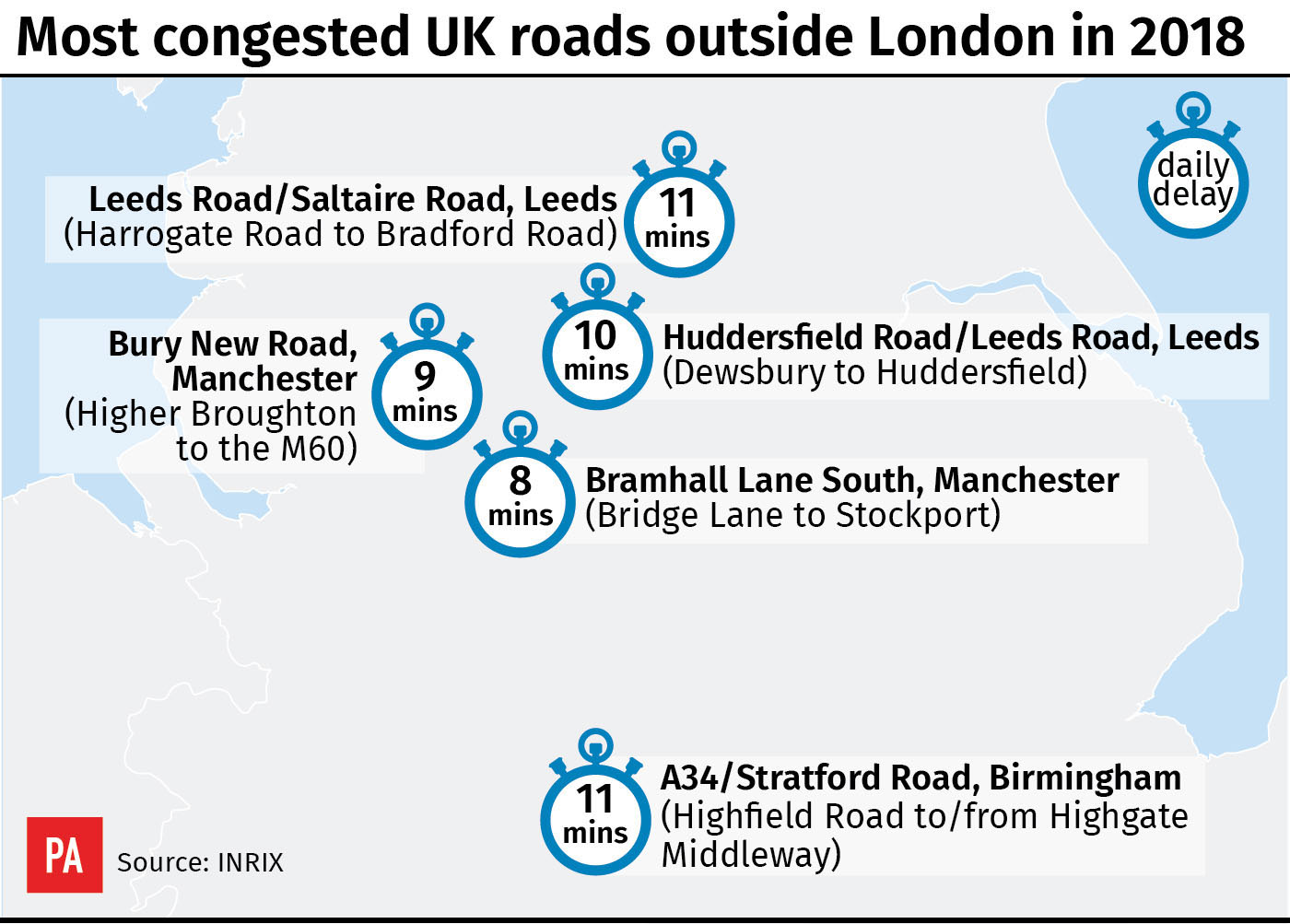
Road congestion cost the UK economy nearly £8 billion last year, according to new analysis.
Transport data firm Inrix calculated that the average road user in London lost up to £1,680 due to jams.
This was followed by Edinburgh (£1,219), Manchester (£1,157) and Leicester (£1,145).

Liverpool had the lowest cost of congestion among the cities studied, at £878 per driver.
London and Edinburgh are the country’s slowest cities with an average speed for journeys into the central business district of just 7mph in peak time.
The A406 from Chiswick Roundabout to Hanger Lane, west London, topped the Inrix list of the worst traffic corridors, with the average driver wasting 61 hours per year in congestion in 2018.
Other roads in the top 10 for hold-ups last year were:
– Leeds Road/Saltaire Road from Harrogate Road to Bradford Road, Leeds (44 hours per year wasted)
– A34 from Highfield Road to Highgate Middleway (44 hours per year wasted)
– Bury New Road from Higher Broughton to M60 (34 hours per year wasted)
Congestion cost the UK an estimated £7.9 billion last year, at an average of £1,317 per driver.
Costs associated with slow-moving traffic include making it harder to transport goods, reduced productivity, raised pollution and increased accident levels.
The research found that London is the sixth most gridlocked city in the world when population is taken into account.
Moscow tops the list, ahead of Istanbul, Bogota and Mexico City.
Inrix transportation analyst Trevor Reed said: “Congestion costs Brits billions of pounds each year.
“Unaddressed, it will continue to have serious consequences for national and local economies, businesses and citizens in the years to come.
“In order to avoid traffic congestion becoming a further drain on our economy, it is increasingly obvious that authorities need to adapt.
“With the help of new and innovative intelligent transportation solutions, we can begin to tackle the mobility issues we face today.”
RAC spokesman Rod Dennis said: “Last year UK drivers told us that they are actually becoming more, not less reliant on using their cars – with struggling public transport cited as one of the reasons.
“This is a serious concern when you consider the limited physical space in our cities and the growing pressures to move large numbers of people around to get to their places of work and leisure.”

Enjoy the convenience of having The Sunday Post delivered as a digital ePaper straight to your smartphone, tablet or computer.
Subscribe for only £5.49 a month and enjoy all the benefits of the printed paper as a digital replica.
Subscribe